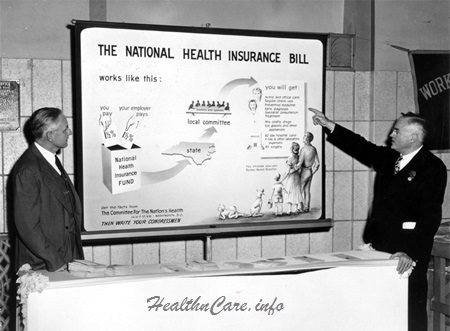
Read a brief History of Healthcare Insurance in the United States, as the health care insurance industry is undergoing an evolutionary process driven by US government health care reforms and public healthcare interest issues.
Insurance, broadly speaking, is designed to protect someone from loss and has been used in different forms since the second millennium BC. As medical knowledge became more advanced it also became more valuable.
Medical practitioners soon moved from practicing medicine in their homes to a centralized medical practice. As time went on, physicians became more knowledgeable and specialized. To further their research resources were necessary and expenses started to accrue. Because of the expenses necessary for medical advances, the cost of medical services started to rise.
Life insurance has a long history that reflects humankind’s awareness of its mortality.
History of health care insurance in the world dates back to the days of Hammurabi in Mesopotamia, where healthcare insurance began as a service performed in exchange for a fee under law. It was expected that successful health care, in particular, surgery with the knife, was paid for appropriately. A person of high status paid the successful surgeon more, but the cost of a failed surgery carried higher costs for the surgeon. Compensation and liability, in other words, were determined by the patient.
Ancient health care providers had extensive knowledge of local flora and, as the world gradually opened up; exotic flora becomes integrated into the ancient pharmacology. Medical knowledge in the ancient world was accumulated over centuries of experiment and experience.
One of the oldest and most extensive examples comes from Mesopotamia called the “Treatise of Medical Diagnosis and Prognoses”. The law was documented on 40 tablets mentioning prescriptions and treatises, though many diseases were blamed on the supernatural based on rational observations of the body.
For much of the history of human civilization, everything from birth to disease to surgery was handled by medical practitioners within one’s own house. But in other traditions, particularly those borrowing more directly from the Egyptians, such as the Islamic tradition, medical knowledge became the foundation for early examples of centralized medical practice.
As the great Arabic Empire expanded around the lower Mediterranean, their accumulated medical knowledge began to be supported in great social and cultural centers. The Classical traditions were combined with existing Islamic knowledge and centuries of herbal medicine borrowed from Chinese, Persian, and Indian traditions in the “Canon of Medicine”, a rigorous text written by the Iranian physician “Abu Ali Sina” in the eleventh century.
But contracts on health care, or health insurance, truly became an issue of vital and controversial importance in the early part of the twentieth century, when medical care became institutionalized and more advanced, and the cost of services began to rise.
With medical costs on the rise and millions of Americans uninsured, health insurance is a topic of heated debate in the United States. But how did our health insurance system tangle itself up in the first place? Although today we are focused on looking ahead, we may very well find the answer from looking behind through the history of the U.S. medical insurance system.

Understanding the history of healthcare insurance in the United States, will let you know us how America got into the crisis, how premiums became dependent on risk, and how workplaces became the primary suppliers of health insurance.
With all of the medical technology coming out every day it is difficult for health care to keep up to adequately protect all of the consumers and their needs. With the ever-changing world of health care and medical technology it is important to have a resource to reach out to help you, your family or your small business find the coverage that is affordable and adequate for the needs of yourself and those important to you.